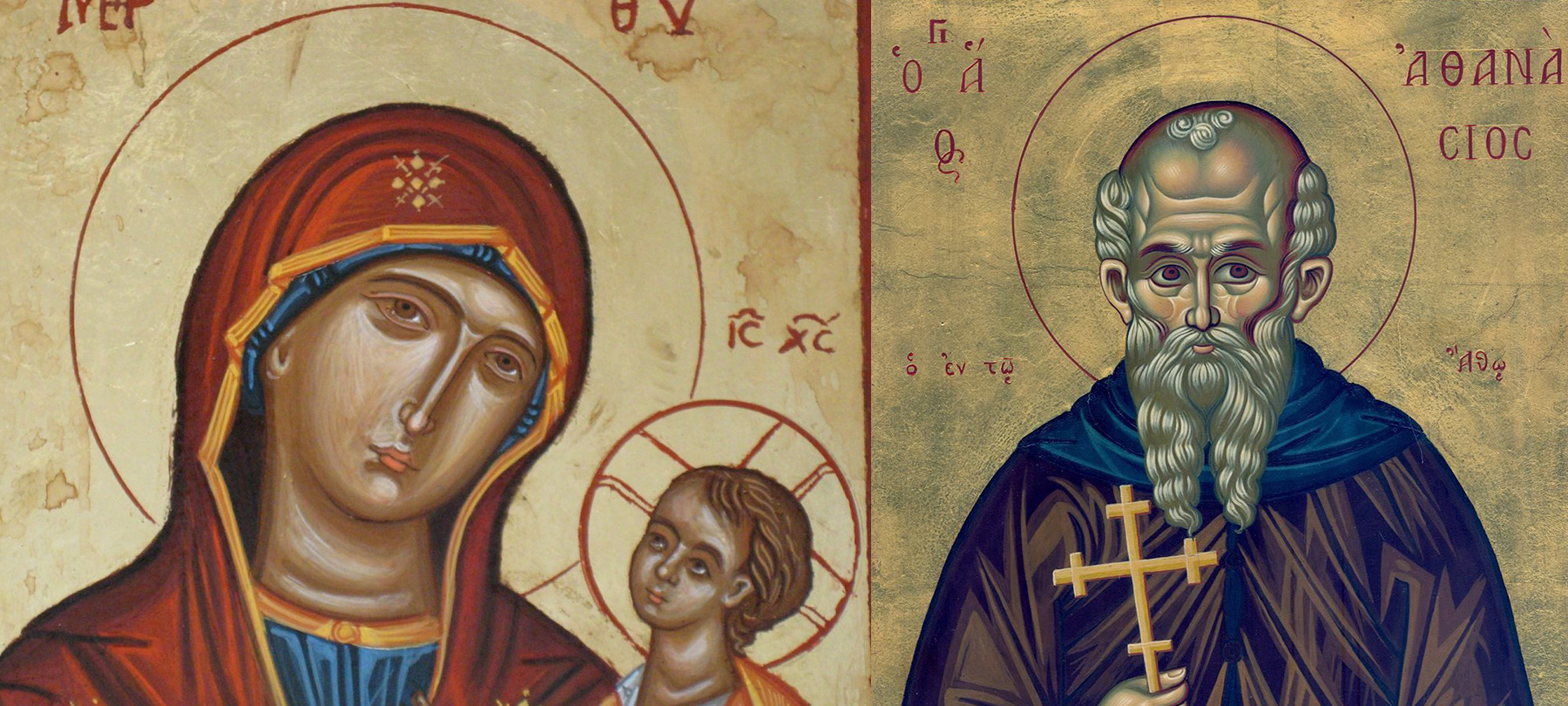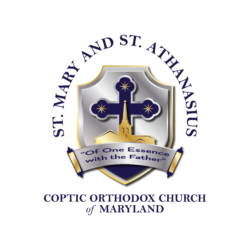The Coptic Church
Who We Are
The Coptic Orthodox Church was founded in the name of the Lord Jesus Christ by St. Mark the Evangelist in the city of Alexandria in Egypt during 43 A.D. The Church believes in the Nicene Creed. Because of the strong defense of doctrine regarding Lord Jesus Christ as Divinity by St Athanasius, who was the twentieth Pope of the Coptic Church, divinity was declared for Lord Jesus Christ during the Council of Nicaea in 325 A.D. He was nicknamed “Father of Orthodoxy” for his doctrine assertion and St. Athanasius “the Apostolic.”
The term “Coptic” is derived from the Greek term “Aigyptos, meaning “Egyptian.” When the Arabs invaded Egypt in the seventh century, they referred to the Egyptians as “qibt.” Over time therefore, the Arabic term “qibt” came to be used interchangeably to mean “Egyptians” and “Christians.
By “Orthodoxy” here is meant the preservation by the Copts of the original faith, defended through the ages against the many attacks aimed at the Old Creed.
The Coptic Orthodox Church worships the Father, the Son, and the Holy Spirit in the oneness of nature. We believe in One God: Father, Son, and Holy Spirit, three coequal, coessential, and coindwelling hypostases, or persons. God for us is the One in the Blessed and Holy Trinity. And thus, we believe that Lord Jesus Christ, the Only-Begotten of the Father and He Who is Coessential with Him, is the only Savior of the world. We are also Miaphysites. There is a differentiation between the Miaphysites—who believe in one united or composite nature, divine and human, of the Lord Jesus Christ—from the Monophysites—who believe in one single nature, divine, of Lord Jesus Christ. We do not believe in just a single nature, but we do believe in the one incarnate nature of the Logos. Fewer changes have taken place in the Coptic Church than in any other church of either ritual or doctrine. Again, from St. Mark, who brought Christianity to Egypt, the Coptic patriarchs, bishops, priests, and deacons have followed each other successively down to the present day.

Our Creed
We believe in one God, God the Father the Pantocrator, who created heaven and earth, and all things seen and unseen.
We believe in one Lord Jesus Christ, the Only-Begotten Son of God, begotten of the Father before all ages; Light of Light, true God of true God, begotten not created, of one essence with the Father, by whom all things were made; Who for us men and for our salvation came down from heaven, and was incarnate of the Holy Spirit and the Virgin Mary and became Man. And He was crucified for us under Pontius Pilate, suffered and was buried. And on the third day He rose from the dead, according to the scriptures, ascended to the heavens; He sits at the right hand of his Father, and He is coming again in His glory to judge the living and the dead, whose kingdom shall have no end.
Yes, we believe in the Holy Spirit, the Lord, the Life-Giver, who proceeds from the Father, who with the Father and the Son is worshiped and glorified, who spoke by the prophets.
And in one holy, catholic and apostolic church. We confess one baptism for the remission of sins. We look for the resurrection of the dead, and the life of the coming age. Amen.
The Council Of Chalcedon
The Coptic Church was misunderstood at the council of Chalcedon which was held in the middle of the 5th century. Maybe the bishops of the Council understood the Church correctly, but they wanted to exile the Church to isolate it and abolish the Egyptian Patriarchate for political reasons. The Coptic Church was accused of following the teachings of Eutyches who believed in Monophysites. This doctrine maintains that the Lord has only one nature: the divine, not two natures: the human as well as the divine. How do the Copts explain the two natures of our Lord? But we believe that He is perfect in His divinity, and He is perfect in His humanity. His divinity and His humanity are united in one nature, which we call “the nature of the incarnate word.” His divinity never parted from His humanity—not an instant, not a twinkling of an eye. His divinity and His humanity are united without mingling confusion or alteration, as was reiterated later by St. Cyril of Alexandria. Faith is more important to the Coptic Church than anything else, and for us, semantics and terminologies are not important; others must know this. When Emperor Marcianus started to interfere in matters of faith in the Church, St. Dioscorus of Alexandria was sent into exile, and the political motives of the Council of Chalcedon began to bear fruit. St. Dioscorus told the Emperor, “You have nothing to do with the Church.” The year 451 thus began independence for the Coptic Church, which has until now remained very stringent and firm in its faith.
The people in Egypt suffered persecutions from their brothers for believing in the two natures of Christ, from 451, the year of the Council of Chalcedon, until 641, when Islam entered Egypt. Many thousands were killed, and Coptic popes were exiled. This period was a tearful time. They went around everywhere to preach, further strengthening their people’s faith, and indeed succeeded in retaining faith. When Islam came to Egypt, the 38th Pope of Alexandria, Benjamin the First, had been in hiding for approximately 13 years. Many of the histories of the Popes of Alexandria state that they were banned from praying in their churches and persecuted for being monophysites.
St. Athanasuis
“He, the Life of all, our Lord and Savior, did not arrange the manner of his own death lest He should seem to be afraid of some other kind. No. He accepted and bore upon the cross a death inflicted by others, and those other His special enemies, a death which to them was supremely terrible and by no means to be faced; and He did this in order that, by destroying even this death, He might Himself be believed to be the Life, and the power of death be recognized as finally annulled. A marvelous and mighty paradox has thus occurred, for the death which they thought to inflict on Him as dishonor and disgrace has become the glorious monument to death’s defeat.”
– St. Athanasius, On the Incarnation
